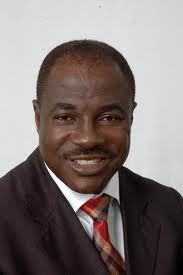The Energy Commission says the country can achieve sustainable energy for all by the year 2020, 10 years earlier than the UN’s target for achieving universal access to modern energy services.
Ghana has thus launched its National Action Plan for achieving the set objectives under the UN’s Sustainable Energy for All initiative, which also includes a target to double the global rate of improvement in energy efficiency and the share of renewable energy in the global energy mix.
“We are making history. This is the first country in the world to launch its plan. But history comes with challenges. Let’s all put hands on deck for Ghana to consolidate its position as the number-one country in the Sustainable Energy for All Initiative,” said Prof. Abeeku Brew-Hammond, Board Chairman of the Energy Commission.
Already, in Africa, Ghana is only behind Mauritius, South Africa and Cape Verde in terms of access to electricity. The national electricity coverage, according to the Energy Ministry, has moved from 15% in 1990 to 72% in 2012.
While access to electricity in Ghana is considered significant, efficiency levels are low in view of the frequent power outages. A lot also remains to be done in terms of access to other modern energy services, especially in the area of cooking.
The use of Liquefied Petroleum Gas (LPG) in Ghanaian homes, says the Energy Ministry, has moved from 0.8% in 1989 to 18% in 2010. Wood-fuel, meanwhile, remains the dominant source of cooking fuel.
About 66,000 Ghanaians die annually as a result of exposure to unclean cookstoves, said Radha Muthiah, Executive Director of the Global Alliance for Clean Cookstoves, at the launch of Ghana’s National Action Plan last week.
The share of renewable energy in the country’s energy mix is also considered low. But the UN has hailed the country’s energy strategy, saying that: “The energy objectives established represent an important example of country-led action that will advance the objectives of Sustainable Energy for All.”
Ghana's energy strategy sets a goal of renewable energy constituting 10 percent of national energy generation by 2020. To reach this goal, Parliament passed the Renewable Energy Act, providing the legal and regulatory framework necessary for enhancing and expanding the renewable energy sector.
The country is also promoting the use of LPG, which is a cleaner fuel than firewood and charcoal. “Government is committed to increasing the penetration of LPG from its current level to 50% by 2020, ahead of the UN Sustainable Energy for All [target date],” a speech read for the Energy Minister at the launch of the National Action Plan said.
Also, to improve the national electric grid, the country is implementing a National Electrification Scheme to provide universal access to electricity by the year 2020. Since the scheme’s enactment in 1989, more than 4,000 communities have been delivered power and 72% of the population have been delivered electricity -- up from 15% in 1990.
To support the country’s efforts, the Global Alliance for Clean Cookstoves has chosen Ghana as the first of six countries to help achieve clean and efficient household cooking solutions.
The alliance, which is a public-private partnership led by the UN Foundation, says it has set aside US$2million to support entrepreneurs in the cleaner fuels sector.
Business News of Friday, 2 November 2012
Source: thebftonline
Gov’t sets ambitious energy targets

Entertainment











